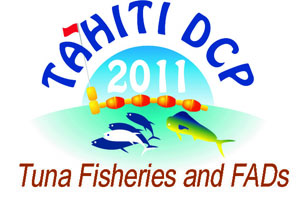Mitigating tropical tuna purse seine bycatch
1 : Institut de Recherche pour le Développement
(IRD)
UMR 212, P.o. Box 570, Victoria -
Seychelles
2 : ISSF
* : Corresponding author
USA -
États-Unis
During recent years, international research efforts have been devoted to the development of methods to reduce bycatch in tropical tuna purse seine fisheries. These include the EU funded project MADE and the ISSF (International Seafood Sustainable Foundation) Bycatch project. The main focus has been on small tunas and vulnerable species such as elasmobranchs and turtles. The major concern for other teleost species constitutes the minimization of wastage, not the reduction of fishery induced mortality. The projects aim to develop methods for bycatch mitigation at the various stages of the fishing process: (1) before the vessel reaches the fishing area, (2) once a vessel reaches a FAD but before setting the net, (3) once the net is set and (4) once animals are on deck. In addition to these categories, simultaneous investigations into the behavior of bycatch species (using electronic tagging and observers data) also allow for the assessment of spatio-temporal mitigation methods. We show that scaling up from national projects (fleets) to international (ocean basins, e.g. MADE) and then global initiatives (e.g. ISSF) provides the scientific framework to efficiently address this global issue. In addition to this synergistic approach, the ISSF initiative has provided the unique opportunity to conduct experiments onboard chartered purse seine vessels. Moreover, by maintaining regular dialogue (through regional skippers' workshops across all oceans), both scientists and fishers work together to find the most efficient methods to reduce the impacts of FAD fishing on the pelagic ecosystem.

 PDF version
PDF version
